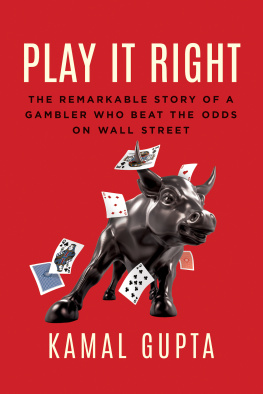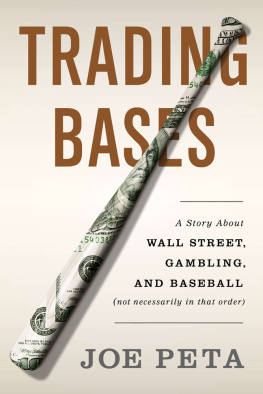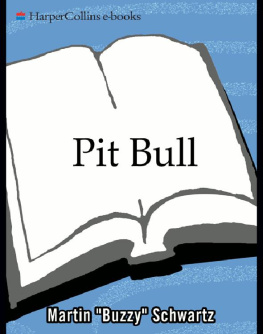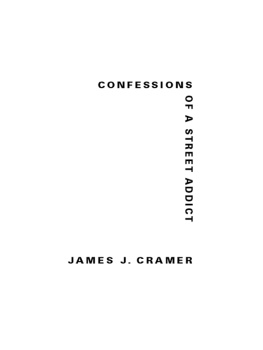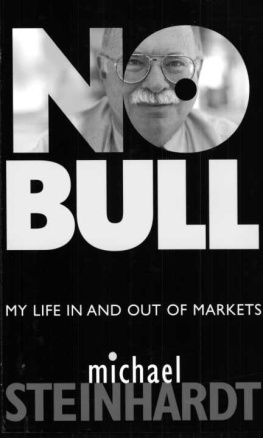
SCRIBNER
An Imprint of Simon & Schuster, Inc.
1230 Avenue of the Americas
New York, NY 10020
www.SimonandSchuster.com
Copyright 2016 by Sam Polk
All rights reserved, including the right to reproduce this book or portions thereof in any form whatsoever. For information address Scribner Subsidiary Rights Department, 1230 Avenue of the Americas, New York, NY 10020
First Scribner hardcover edition July 2016
SCRIBNER and design are registered trademarks of The Gale Group, Inc., used under license by Simon & Schuster, Inc., the publisher of this work.
For information about special discounts for bulk purchases, please contact Simon & Schuster Special Sales at 1-866-506-1949 or .
The Simon & Schuster Speakers Bureau can bring authors to your live event. For more information or to book an event, contact the Simon & Schuster Speakers Bureau at 1-866-248-3049 or visit our website at www.simonspeakers.com.
Interior design by Kyle Kabel
Jacket design by Alex Merto
Library of Congress Cataloging-in-Publication Data
Polk, Sam.
For the love of money : a memoir / Sam Polk.
pages cm
1. Polk, Sam. 2. Investment advisorsUnited StatesBiography. 3. StockbrokersUnited StatesBiography. I. Title.
HG4928.5.P65A3 2015
332.6092dc23
[B]
2015023618
ISBN 978-1-4767-8598-1
ISBN 978-1-4767-8600-1 (ebook)
To my wife and daughter
And so we beat on, boats against the current, borne ceaselessly into the past.
F. Scott Fitzgerald, The Great Gatsby
There are a thousand hacking at the branches of evil to one who is striking at the root.
Henry David Thoreau
Authors Note
The events in this book are real. Ive changed most names and altered some details to honor peoples privacy.
Prologue
T he e-mail from Sean popped up in my in-box.
Come to my office.
I felt a jolt of adrenaline. It wasnt fear, exactly. It was just that so much could happen in a late-January conversation with your boss. On Wall Street, everything importantbonuses, promotions, firingshappens in January.
I leaned back in my chair and looked down the row to Seans glass-walled office. He sat at his desk, typing on the keyboard. I could usually sense his mood from the set of his jaw, the hunch of his shoulders. Today I couldnt tell. Sean was the head of trading at Pateras Capital, one of the largest hedge funds in the world. It was rumored that in bad years he made $20 million.
I was one of five senior traders at Pateras. Each of us was responsible for a particular market. I traded bonds of companies in or near bankruptcy. The distressed market. The term distressed captured how I was feeling about my entire life.
When Sean offered me a million dollars to leave Bank of America and come to Pateras, Id felt like I won the lottery. Pateras was one of the most prestigious hedge funds on Wall Street. I couldnt have dreamt up a more perfect job. But in the two years since Id arrived, Id started to see thingsabout Wall Street, about myselfthat I hadnt seen before. Now I wasnt even sure I wanted to be here anymore.
I typed out a reply to Sean. Be there in two minutes. I wanted him to think I was busy, and I also wanted to collect myself. I had some internal tension when it came to Sean.
In my first few months at Pateras Id seen firsthand what an amazing trader Sean was. His market knowledge was encyclopedic; his instincts were fighter-pilot sharp. I started to fantasize about becoming his protg.
But our relationship hadnt developed as Id hoped. While Sean treated me with respect, he never focused special attention on me. He saved that for another senior trader, Derek Mabry. Derek wore expensive suits, dated models, and spent weekends in the Hamptons. Sean preferred him. When Id see Derek sprawled on the chair in Seans glass-walled office, embers of jealousy smoldered inside me.
I worried my big mouth had gotten me in trouble. A few times Id been on the phone with my identical twin brother, discussing the pros and cons of leaving Wall Street, when I suddenly realized how loudly Id been talking, and how quiet the trading floor was. I worried Sean had overheard me, that my loose lips had jeopardized my bonus. Why pay someone millions of dollars if their heart isnt in it anymore?
Sean looked up as I pulled the door open.
Hows the market? he asked.
Stable, I said. Not much going on.
For the past year and a half, the market had fluctuated like a pitching boat. We were still climbing out of the Great Recession. But that day the market was quiet, as if it were taking a collective, exhausted breath.
Sean nodded. The stress of the past few years had taken its toll. Hed always been thin, but he was starting to resemble a cadaver. His head seemed enormous atop his emaciated body. You could see the shape of his skull.
Let me get right to it, he said.
I held my breath.
What are you expecting this year for a bonus? Give me the number, he asked.
I exhaled. We were having The Bonus Talk. I was safe, not fired. Under Seans gaze, I searched for a response. But the answer seemed hazy, far away.
It wasnt that I hadnt thought about it. Its impossible to overstate how often Wall Street traders think about their bonuses. Those thoughts drive every trade, meeting, client dinner, and ball game. The carrot at the end of the stick.
One of the reasons you think so much about it is because you dont have much control over it. Its a great paradox on Wall Street, where you supposedly eat what you kill, that your bonus is entirely at your bosss discretion. The more trading profits you make, the bigger your bonus will likely be. But there are other variableshow profitable the firm is, seniority, what competitors are paying. You just dont know.
It was especially true for me that year. Id had the best trading year of my life. Id been positioned perfectly for a market collapse. When the crash came, Id closed out trades for huge profits, and then bought a ton of deeply distressed bonds for cents on the dollar, just as the market bottomed out. Those bonds screamed higher, and by the end of the year, Id earned several hundred million dollars for Pateras. The year before Id made less than half of this years take for Pateras, and my bonus had been $1.3 million. Sean said that the longer I was at Pateras, the higher my percentage payout would be. Given how much I was up this year, a higher-percentage payout would mean a massive amount of money. NBA all-star money.
I was thirty years old. Id been an English major. Id managed to keep my past a secret.
I gazed back at Sean. He was about to tell me Id make more that year than my mom, a nurse-practitioner midwife, had earned in her entire life.
So tell me, said Sean. Whats the number?
I have no idea, I said.
Your bonus this year, he said, will be three point six million.
I took a step back, staggered. Lots of people on Wall Street make a million bucks a year. Few make almost four. It was an instant entrance into the ranks of the super wealthy. Id yearned for this moment my whole life. And now that it had happenednow that Sean had said the actual numberI wanted more.
As I ran the numbers in my head, a hollow feeling crept into my stomach.
So you all are paying me less of a percentage than last year? I asked.
I think they should have paid you more, Sean said. But you know how Peter is. Peter Conroy, comanaging partner of Pateras, controlled the purse strings and seemed to think everyone should just be grateful to be there.
My happiness disappeared under a flash flood of anger.


